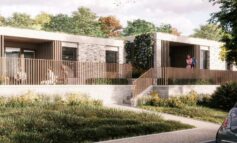Draft plans that will shape the future of development in the West of England were approved last week for consultation by the Cabinet of Bath & North East Somerset Council.

Image courtesy of B&NES Council
Effects in B&NES will include additional housing developments for Keynsham and Whitchurch, ‘urban intensification’ for existing communities and a number of proposed road projects.
Liberal Democrat spokesperson on Homes and Planning, Councillor Will Sandry (Oldfield), commented: “The public consultation on these proposals is welcome and it’s vital that as many local residents as possible engage with the process. No decisions have yet been made and I want to hear from the Cabinet that they are willing to listen to the responses they receive.”
“There are a number of areas of concern in the proposals, which are already attracting criticism from residents and campaigners across the West of England.
“Areas of B&NES which are already due for major development are likely to receive even more housing, with over 1000 extra homes in Keynsham and 3,500 in Whitchurch.”
“B&NES is taking on overflow from Bristol and South Gloucestershire as the Councils in the West gradually increase their cooperation. These new and growing communities will only work if the infrastructure is put in place.
“The plans have plenty of road building suggestions – including an unwelcome resurrection of the discredited Saltford bypass plan – but little to say on facilities such as schools and doctors’ surgeries.
“I also question whether the £7.5bn price tag for transport projects is really achievable, even over 20 years, given the squeeze on spending.”
“This Strategy also offers little to the communities in the Somer Valley and to improve links to the South and East of Bath. We need more joined up thinking between Councils beyond our traditional partners in the former Avon.”
In a statement released earlier this month, the Leaders of North Somerset Council, Nigel Ashton, South Gloucestershire Council, Matthew Riddle, Bath and North East Somerset Council, Tim Warren and the Mayor of Bristol City Council, Marvin Rees, jointly said: “The challenge we face as a region that is continuing to grow, is to continue to develop our economic prosperity in a way that benefits all our communities and protects the planet.
“We’re responding to the needs of our growing population; increasing demands for homes and jobs, and seeking to address the issue of affordability for people on lower salaries wanting to buy or rent their own home.
“There is a significant gap between the cost of houses and the level of income and whilst we cannot narrow the gap alone, we want to give more people the opportunity to get onto the housing ladder.
“Our intention is to have a joined-up approach to providing the homes that people need and the supporting infrastructure, whilst retaining the individuality of each community.
“This is an opportunity to ensure that the housing is matched by the necessary support and facilities. This could mean new roads, public transport, schools, and health facilities to meet local needs.
“No decisions have been made at this stage, but we are in agreement that affordable housing is a high priority that will mean the next generation can live and work in the West of England and benefit from growing business and employment opportunities.
“We’re also committed to prioritising development on brownfield sites to rejuvenate existing derelict land.
“The solutions to these challenges will affect each of our council areas, which is why we are taking this joint approach and why we will consult extensively with all the communities and stakeholders across the West of England from the start of November.”



